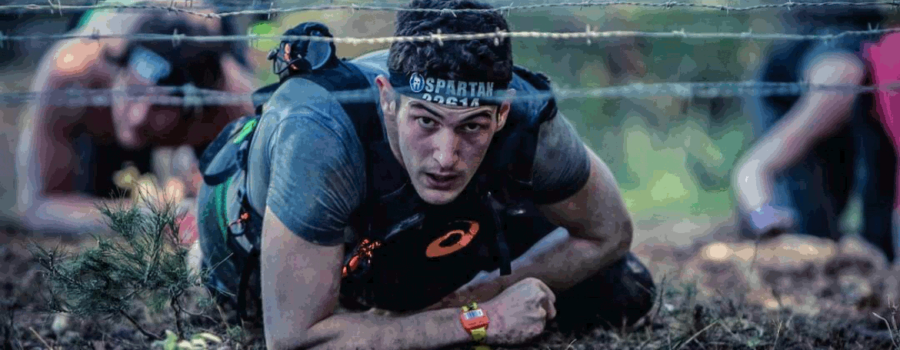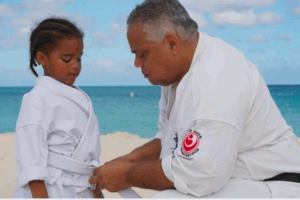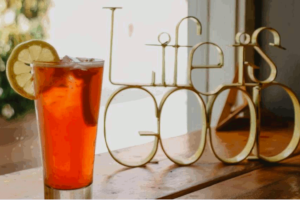One of the major characteristics of stoics, and one of the most beneficial, is that they have mental toughness and exhibit a lot of self-discipline. Those traits allow them to thrive in the face of life’s difficulties and obstacles. They just don’t randomly get by in life; they excel. Having self-discipline and proper judgment allows you to make wiser decisions under pressure. Additionally, it enables you to take on challenges, and facing challenges results in a fulfilling life. Being able to rely on your self-control and mental toughness is a competitive advantage few others have, whether it be in sports, the workplace, or your personal life.
So, how do we hone this mental toughness and self-discipline repeatedly referred to by the Ancient Sages? One of the ways to prepare your body and mind to withstand challenging situations is to establish habits and routines. Practice this regularly, if not daily. I’ve found that it is best to attempt to incorporate them into your daily schedule. It isn’t always easy to do, but with enough effort and time, it can be accomplished.
During those easy times of life, when it is smooth sailing, we should take the time to toughen ourselves. This was advocated by the three most influential Stoics: Epictetus, Seneca, and Marcus Aurelius. They all saw the benefit of practicing voluntary suffering in order to teach the mind how to deal with challenges in life and toughen the spirit. If all you do is focus on maintaining your comfort level, every uncomfortable circumstance will rock your world and divert your attention.
Bad events, those that will test your mental and/or physical resolve, will eventually happen at some point in your life. You need to be strong enough to endure these obstacles and hardships. You need to teach yourself to be okay with discomfort. This is cornerstone to having the mental and physical strength to handle the challenges of life. Dealing with illness, coping with losing a loved one, financial hardships, or your spouse wanting a divorce, etc. The list goes on and on.
As a young man, I underwent some of the most intense training the military has to offer. One of those military schools had a motto that said, “Suffer Patiently, Patiently Suffer!” Students were continually put through harsh training that was designed to break them down. Many candidates quit. The school had a very high attrition rate, and that was among the crème de la crème of candidates. Those of us who passed the training became mentally and physically hardened. It was designed to enable the students to learn that hardship and discomfort are sometimes unavoidable. Secondly, teach how to patiently deal with them.
You often can’t hurry through hardship and discomfort. One must lower their chin and face it squarely. Not giving into defeat, even if it is a long, slow process. It built hard men and was very akin to the mental toughness talked about by the stoics of old.
Not everyone can or wants to go through this kind of military training, but there are other ways to put yourself in uncomfortable situations on purpose in order to get mentally tough.
One of our most powerful instincts is to consume! We like to eat, drink, and be merry! I’ve personally found intermittent fasting to be a doable method for building self-discipline. I won’t go into the details, as there are numerous sources available in print and on the Internet, but you basically do not eat for a certain number of hours per day. Your eating window can only be for 4, 8, or 12 hours. The rest of the time, you simply refuse to eat and drink only water. It requires a bit of self-discipline, but the more you practice it, the easier it becomes. The goal is for it to become a habit and routine.
Another is setting aside the phone, computer, TV, video games, etc. for a period of time in which they normally occupy your time. Again, this builds mental toughness. It isn’t as harsh as doing military operations in the freezing rain for several days straight. Most people find it is doable and might open you up to more family time or reading. It is a positive thing to do and builds a lot of self-discipline.
You can also do little things like never allowing yourself to hit the snooze button when the alarm goes off. Setting your alarm an hour earlier than you normally do in order to rise. Buidling a routine of doing some exercises to start your day. One that I’ve used many times is exercising outside, regardless of the weather. It sounds crazy, but no matter how cold or wet you get, you can always go back inside afterwards to get dry and warm. It will make you tougher, and it will take self-discipline to even do it.
There are numerous other things you can probably think of that you could do to build toughness. It doesn’t have to be extreme, and it can be fun to push yourself. You will get better, stronger, and smarter if you subject yourself to physical and mental hardship on a regular basis. To be more ready for future discomfort, we want to feel some discomfort right now. Your self-confidence in your ability to endure hardship when it occurs is boosted by your knowledge that you can handle discomfort. You should also occasionally decide not to indulge in another beer with friends, start another hour of your favorite video game, or have that extra plate of food at Thanksgiving. All of these examples are rather small, but they build self-control and discipline. Remember, most people lack those two qualities, but then you aren’t most people.
There is no need to live like a Spartan every day, but you should occasionally push yourself by engaging in deliberate discomfort. You’ll be able to navigate the challenges of life much better. Saying no on purpose to some common pleasures is another Stoic technique to develop self-discipline and mental fortitude and to feel in control of your actions. Making your life difficult and unpleasant is not the point of these workouts; doing that would be counterproductive. Instead, you practice them to develop your self-control and mental fortitude. It’s about shattering the instant gratification cycle. If you don’t, you’ll get used to the comforts and pleasures of life and struggle to motivate yourself to carry out difficult tasks when they arise. This eventually results in a life of quick pleasure, sloth, and always choosing the easiest road. That is not the Stoic way.









Most Commented Posts